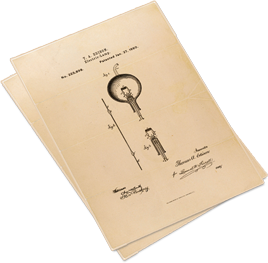We hear that a lot when we talk to clients about copyright matters. And people in business can’t be faulted for thinking that when they pay someone to create a logo for them, write a manual, design a Web page, or lay out a promotional handout, they own the work they paid for.
Unfortunately that’s just not true.
Copyright in a creative work — the right to make and distribute copies, to authorize use and the making of derivative works by others — belongs to the author of the work from the moment the work is “fixed in a tangible medium” — drawn, written down, recorded, sculpted, etc. And the author owns the exclusive right until he or she transfers all or part of that right to someone else in writing.
“In writing” is the critical bit. When you hire an independent artist, writer, photographer and so forth — independent contractor — to create something for you, even according to your very specifications, you have an implied license to use the work for the purpose for which you had it done, but that’s all you have. Without something in writing to the contrary, your “license” is not exclusive, in the first place, and does not necessarily extend to any other use of the work.
So that the artist can re-use the design in someone else’s ad campaign, the photographer can resell the photographs to others for publication and distribution, and the writer can use all or any part of the composition in another project and license the movie rights. And you can’t do any of those things without the author’s consent or benign neglect.
In most cases, the work you will have an independent contractor do for you is so specific to you, and so limited in its applicability, that its ownership is not ever going to be a source of conflict. But while the right to make and authorize copies and derivative works may not be worth worrying about most of the time, it’s worth knowing the rules and keeping them in mind. Is there a character in the design worthy of a program on Cartoon Network? Are the photographs worthy of National Geographic? Is the advertising jingle catchy enough to be reused in a video game? Probably not, but the time to consider these things is not the day that Google offers to buy your business and everything in it for billions.
The key thing to know, to keep in the back of your mind when you engage an independent contractor for anything creative, is that a spoken word and a handshake is worthless where the copyright in the work is concerned, and the time to secure the right to make copies and derivatives is not after the thing has become valuable.


